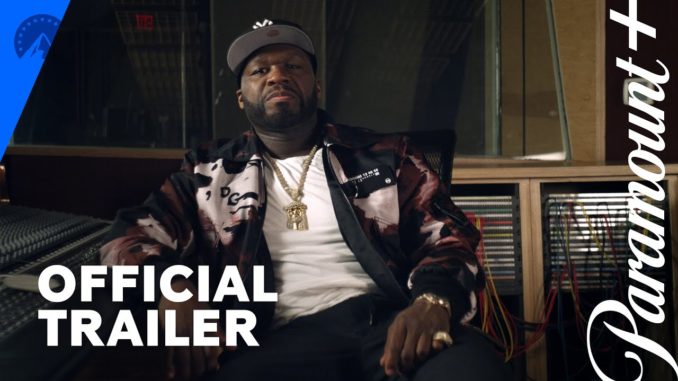
The documentary How Music Got Free sheds light on a pivotal but often overlooked moment in music history, where a combination of technology, piracy, and industry missteps led to the rise of file sharing and, ultimately, the streaming era. The documentary is from executive producers Marshall “Eminem” Mathers, LeBron James, Maverick Carter, Paul Rosenberg and Steve Stoute and produced by Warner Bros. Unscripted Television/Telepictures in association with SpringHill, Interscope Films, and Shady Films. It is directed by Alex Stapleton and based on Stephen Witt’s 2015 book of the same name, the documentary offers an in-depth look at how a small group of tech-savvy individuals and underpaid factory workers disrupted the global music industry, changing it forever.
At the heart of this story is Dell Glover, a factory worker at Universal Music’s CD manufacturing plant in Shelby, North Carolina. Glover played a central role in one of the most significant piracy operations of the early 2000s. From his position inside the plant, he smuggled out unreleased albums from major artists like Jay-Z, Mary J. Blige, and 50 Cent. Glover and his collaborators used MP3 technology, a new digital format developed by the Fraunhofer Institute in Germany, to rip these albums and share them online, where they were quickly disseminated through platforms like Napster, Kazaa, and Limewire.
The documentary examines how Glover and others in the so-called “warez” scene—an underground network of digital pirates—took advantage of the nascent internet and MP3 technology to leak music. These individuals, many of whom were teenagers at the time, unknowingly laid the groundwork for the future of digital music distribution. What began as a small, rogue operation grew into a movement that would push the entire industry to its breaking point.
The impact of music piracy during this period was profound. By the early 2000s, the music industry, once buoyed by the sales of CDs, was in steep decline. The widespread availability of free, pirated music caused significant revenue losses for record labels, leading to layoffs and a decline in artist income. Eminem, one of the most pirated artists of the era, spoke candidly in the documentary about the frustration artists felt as their albums leaked ahead of release, sabotaging marketing efforts and cutting into sales.
While the documentary focuses on the damage piracy caused, it also highlights how it inadvertently paved the way for the rise of streaming services. Platforms like Spotify and Apple Music, which dominate the music landscape today, were built on a model similar to what pirates had popularized: easy access to vast catalogs of music. In fact, the proliferation of free music during the early 2000s fundamentally changed consumer behavior, making listeners expect instant access to any song they wanted.
Glover’s story and the larger narrative of How Music Got Free also reveal the economic disparities between the industry’s upper echelons and the workers at the bottom. Glover and his fellow factory workers were making meager wages while producing albums that generated millions in revenue for record labels. As one factory worker in the documentary bluntly put it, “If they wanted me to be good, they should’ve paid me more.” Their actions were, in part, a form of rebellion against an industry they felt was exploiting them.
The documentary also touches on the legal battle between the music industry and file-sharing platforms. While Napster became the most famous target of lawsuits from record labels, the real innovators behind music piracy—the pirates who first ripped CDs and shared them online—remained largely anonymous. The documentary emphasizes that the record industry’s response, which included suing fans who downloaded music, did little to stop the spread of piracy and, in some cases, worsened its public relations problem.
Ultimately, How Music Got Free is more than a story of piracy; it is a reflection on how technology and consumer expectations can radically reshape entire industries. The documentary captures a key moment in music history, one that saw the industry nearly collapse under the weight of its own outdated practices, only to be resurrected by the very technology that once threatened to destroy it.
The docuseries features interviews with key figures from the file-sharing era, including Glover, industry executives, and artists like Eminem and 50 Cent, who were directly impacted by the piracy wave. As the documentary reveals, the story of how music got free is not just about piracy; it is about the future of music and how technology continues to redefine the relationship between creators, consumers, and the industry.



Leave a Reply